Abstract
Kunin, Calvin M. (University of Virginia, Charlottesville) and Mary V. Beard. Serological studies of O antigens of Escherichia coli by means of the hemagglutination test. J. Bacteriol. 85:541–548. 1963.—The serological interrelationships among most of the known O antigens of Escherichia coli were studied by the hemagglutination test. Good agreement with the bacterial agglutination test was found with the major antigens, but cross reactions among groups were much more limited with the hemagglutination test. Heterogenetic cross reactions with many Enterobacteriaceae species were observed with rabbit antisera to E. coli O14, O56, O124, and O144. This effect tended to elevate antibody titers observed in human serum against almost all O antigen groups, but could not by itself account for the wide diversity of antibodies to them. E. coli antibodies were localized in human γ-globulin, but were present in the β-globulin fractions of a number of domestic animals. Rabbits differed from other animals studied in that antibodies to E. coli were rarely found in their sera; this was attributed in part to the low density of E. coli populations in this animal. The hemagglutination test may be used in identification of unknown O antigens, but does not have special merit over the bacterial agglutination test; it does not further characterize rough or untypable strains other than by demonstrating that they also possess heterogenetic antigens.
Full text
PDF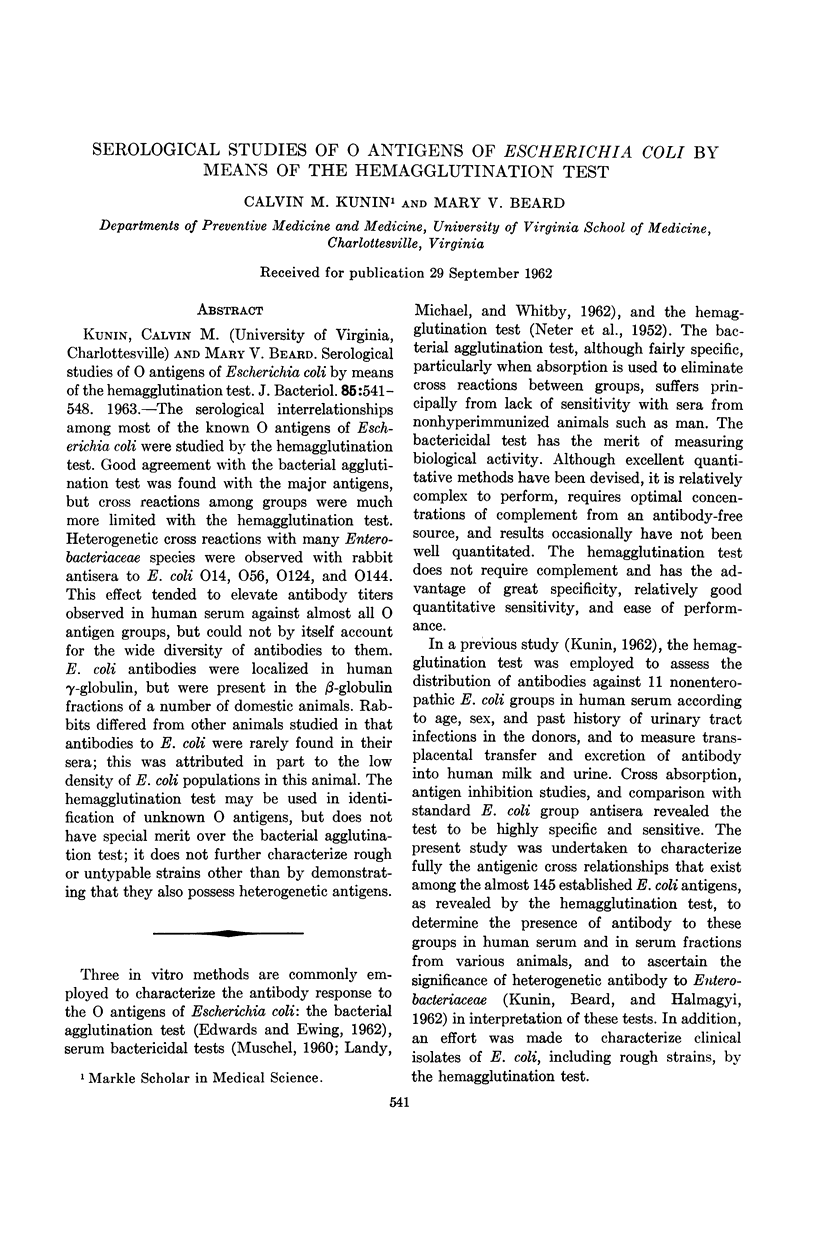

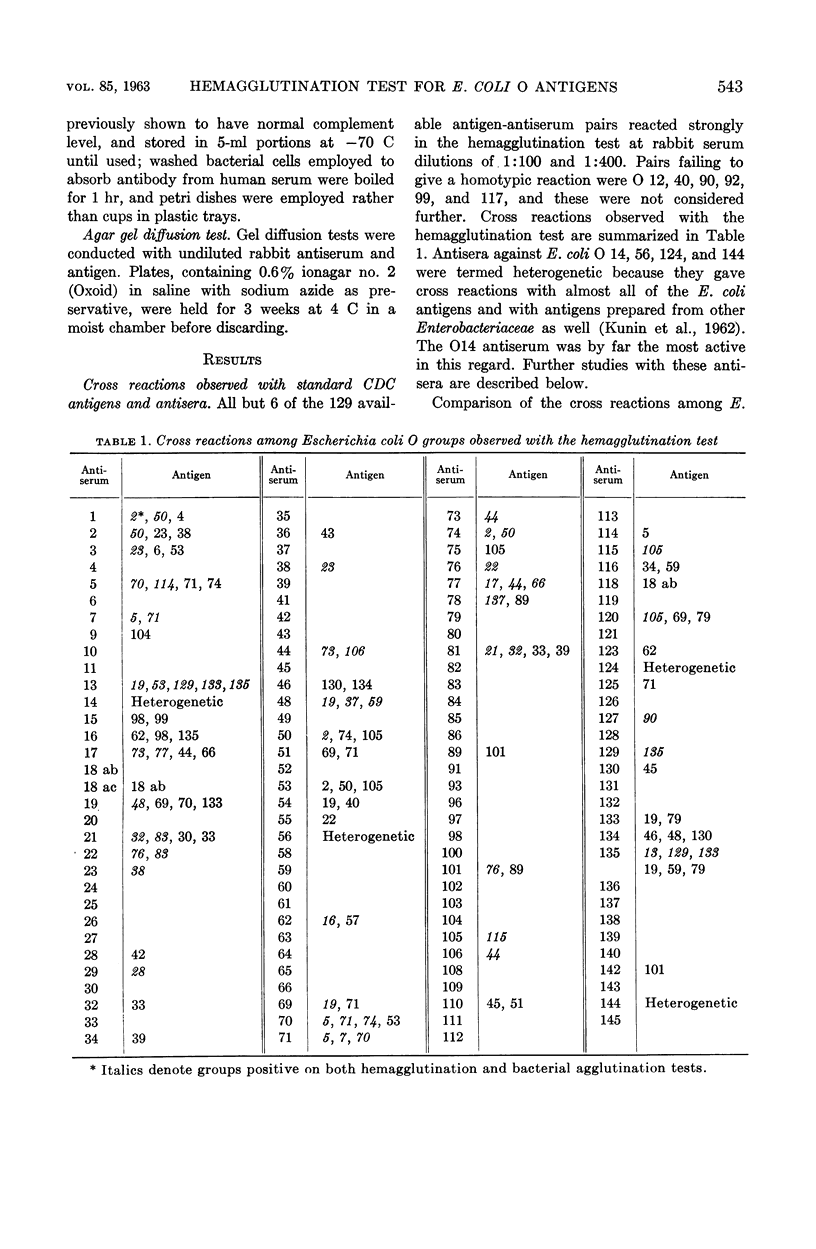
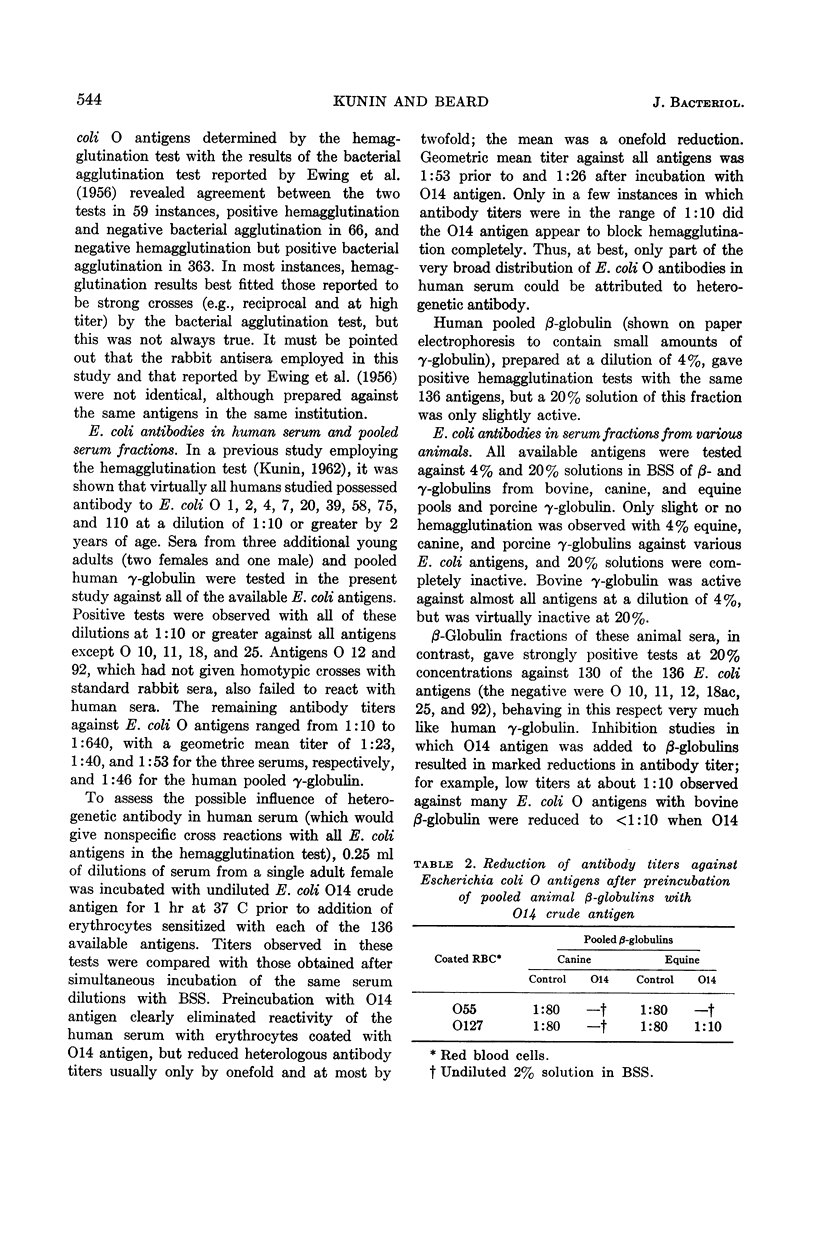
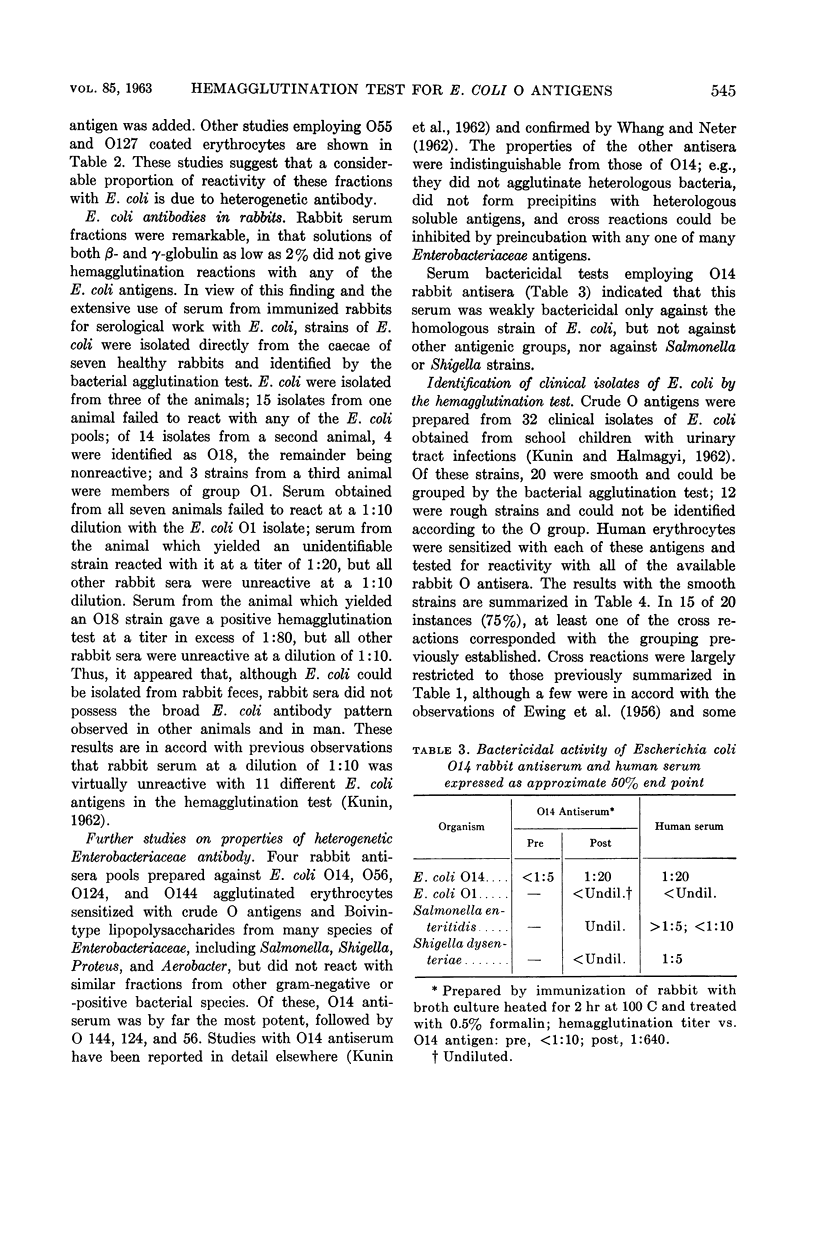
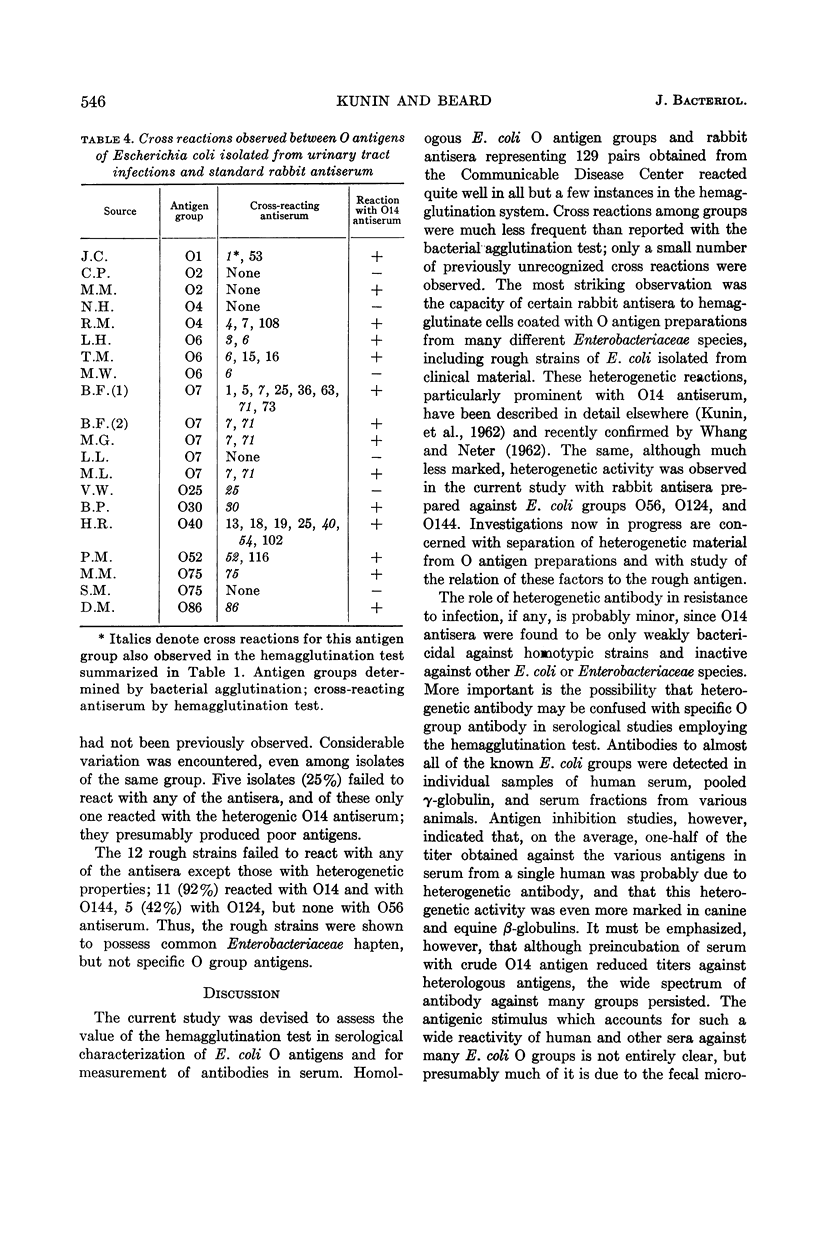


Selected References
These references are in PubMed. This may not be the complete list of references from this article.
- FINK C. W., MILLER W. E., Jr, DORWARD B., LOSPALLUTO J. The formation of macroglobulin antibodies. II. Studies on neonatal infants and older children. J Clin Invest. 1962 Jul;41:1422–1428. doi: 10.1172/JCI104597. [DOI] [PMC free article] [PubMed] [Google Scholar]
- KUNIN C. M., HALMAGYI N. E. Urinary-tract infections in schoolchildren. II. Characterization of invading organisms. N Engl J Med. 1962 Jun 21;266:1297–1301. doi: 10.1056/NEJM196206212662502. [DOI] [PubMed] [Google Scholar]
- LANDY M., MICHAEL J. G., WHITBY J. L. Bactericidal method for the measurement in normal serum of antibody to gramnegative bacteria. J Bacteriol. 1962 Mar;83:631–640. doi: 10.1128/jb.83.3.631-640.1962. [DOI] [PMC free article] [PubMed] [Google Scholar]
- MUSCHEL L. H. Bactericidal activity of normal serum against bacterial cultures. II. Activity against Eschericha coli strains. Proc Soc Exp Biol Med. 1960 Mar;103:632–636. doi: 10.3181/00379727-103-25619. [DOI] [PubMed] [Google Scholar]
- WHANG H. Y., NETER E. Immunological studies of a heterogenetic enterobacterial antigen (Kunin). J Bacteriol. 1962 Dec;84:1245–1250. doi: 10.1128/jb.84.6.1245-1250.1962. [DOI] [PMC free article] [PubMed] [Google Scholar]


